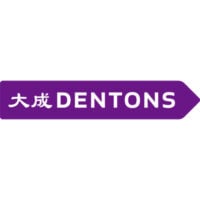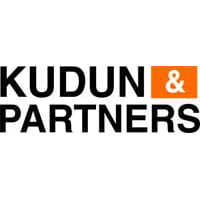
China 2019

General counsel Greater China | Continental





Limin Xie
General counsel Greater China | Continental
In 2018, we successfully completed the legal steps of the carve-out of our powertrain business in China. That included the creation of a new China holding company, multiple share and assets, business, employee transfers etc. which was a part of the biggest internal reorganisation in the history of Continental. All within six months, seven months less than originally scheduled by external advisors. In terms of litigations, we have won a case regarding the infringement of trademarks and trade names for products in different categories for the first time in the company’s history, in both the first and second or final instance, and obtained ¥1m in compensation.
The company and the whole automotive (supply) industry are undergoing hard transformations, such as digitalisation and electrification, accompanied by the entry of market disrupters and the recession of global automotive markets, particularly in China. The increasing complexity of regulations – high emission standards and new developments in areas like cybersecurity and personal data protection in Europe and China – significantly enlarges the scope of in-house legal work, and the crisis of customers and suppliers under difficult market circumstances requires higher efficiency and better soft skills in addition to legal expertise. In the meantime, recruiting and retaining in-house legal talent is becoming much tougher with competition from other industries.
Law firms should be able to show their understanding of the industry and/or business and focus their resources and capacities on the right issues to be solved. They will be required to prove and justify the real value – sometimes outside the legal aspect – of their services since legal tech is expected to take over more routine and repetitive work. Creativity and efficiency are the key requirements for law firms. They shall also be open to alternative fee models. Hourly billing models will be disappearing and only considered for niche or high end areas.
Relationships with OE (original equipment) customers, namely car manufacturers, is quite unique in the automotive industry, particularly in China and is very challenging for the company as a supplier. Both contract negotiation and claim management depend heavily on the economic cycle and market position of OE customers so legal arguments or actions are often not a big help in China. Culture gaps and different mind-sets – particularly in the relationship with market disrupters – are potential conflict areas too.
FOCUS ON… Reform of arbitration or arbitrators’ fees in China In July 2019, the Beijing Arbitration Commission (BAC) adopted its revised arbitration rules, effective from 1 September 2019, which are mainly related to the fee schedules. The revision is a remarkable reform of arbitration fees and is highly regarded as the pioneer in the Chinese arbitration practice. One of the most significant changes of the new rules is the clear division of arbitration fees into arbitrators’ fees and administration fees. For historical reasons, all arbitration institutions in China have been dividing their fees into case acceptance fees and case handling fees. It is not really clear to the parties as to how much is supposed to be paid for the work of arbitration institutions and arbitrators, particularly how much is going to be spent on the core of the arbitration – the work of arbitrators. It is therefore not surprising that this lack of transparency has been widely criticised as it also deviates from international practice in which the biggest part of the arbitration fees contributes to the remuneration of arbitrators, while in China the practice could be rather reversed. In its old arbitration rules, for international commercial arbitration, the BAC has adopted a separate fee schedule which distinguishes between arbitrators’ fees and administration fees, and it is now extending its application to domestic cases as the basic rule of fee arrangement. It is expected that this reclassification is conducive to providing incentives for arbitrators to deliver good performance, because with the transparency now, the amount of the administration fees would have to rank behind such arbitrators’ fees if the arbitration institutions really want to convince the parties of their quality of work, which is actually based on the work of arbitrators. So such reform would probably be realised at the cost of arbitration institutions, who would have to accept lower administration fees. It is thus naturally questionable whether arbitration institutions in China would be able to afford its current staffing if their income shrinks due to this sacrifice. With less support from arbitration institutions, there are justified concerns whether certain arbitrators would be able to continue to do their jobs well. The hope would be that the new rules would enhance and cement the trust of the parties on the quality of arbitration and the number of cases would increase. In addition, the BAC has taken a few measures to raise the fees of arbitrators in correspondence to the economic development that’s reflecting respect for the value of arbitrators’ work. A highlight is the hourly rate which is now also available in domestic cases. In international arbitration practice, the hourly billing method for arbitrators’ fees is well accepted as a common practice to reward the contribution of arbitrators accurately. It is also an efficient instrument to control costs, particularly in high value cases. Hence, the new rules introduced hourly rates to calculate arbitrators’ fees according to the parties’ agreement and simultaneously cap it at ¥5,000 in principle. It needs to be proven in practice whether better remuneration of arbitrators, based on hourly rates, would work out as expected. It is not clearly visible if the performance of current practicing arbitrators depends very much on the amount of their remunerations. Personal integrity and the independence of arbitrators as well as professionalism could not be simply and automatically bought with better pay. The selection of qualified and trustful arbitrators is the first and key step and should not be missed in the applause for raising arbitrators’ fees as appreciation for the value of their work.